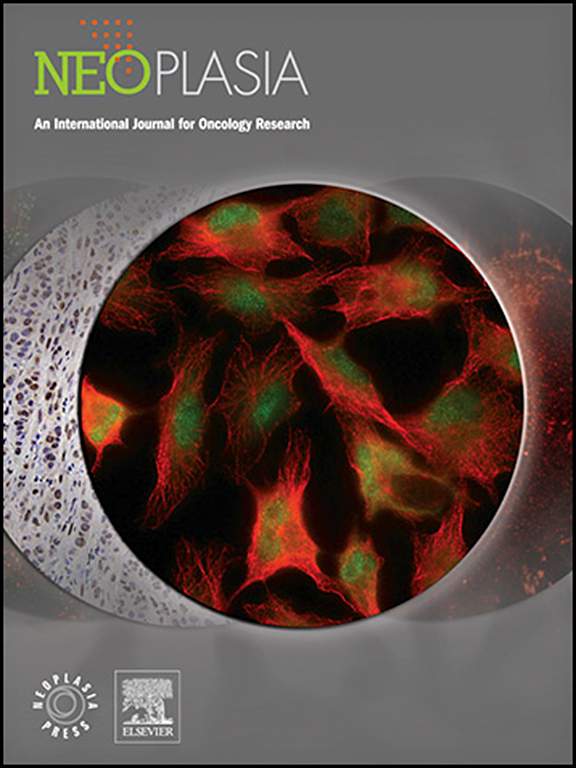kv11.1依赖性衰老通过肿瘤坏死因子激活致死性免疫反应。
IF 7.7
2区 医学
Q1 Biochemistry, Genetics and Molecular Biology
引用次数: 0
摘要
了解癌症和免疫监测之间的复杂关系对于利用免疫系统控制肿瘤生长至关重要。在我们的研究中,我们发现激活ER+乳腺癌细胞中的Kv11.1钾通道可诱导衰老表型,进而引发针对这些衰老细胞的有效免疫反应。具体来说,我们发现衰老相关分泌表型(SASP)在激活CD4+ T辅助1 (Th1)细胞和记忆T细胞表型中起着至关重要的作用。这种激活导致肿瘤坏死因子α (TNFα)的释放,诱导衰老乳腺癌细胞死亡,而不依赖于它们对内分泌治疗的抵抗。我们的研究结果表明,Kv11.1通道诱导的ER+乳腺癌细胞衰老是免疫监视的关键机制,通过TNFα驱动致命的免疫反应。这些结果突出了Kv11.1激活在er阳性乳腺癌中的潜在免疫调节作用,并为未来的治疗研究提供了基础。本文章由计算机程序翻译,如有差异,请以英文原文为准。
Kv11.1-dependent senescence activates a lethal immune response via tumor necrosis factor alpha
Understanding the complex relationship between cancer and immune surveillance is essential for leveraging the immune system to control tumor growth. In our study, we discovered that activating the Kv11.1 potassium channel in ER+ breast cancer cells induces a senescent phenotype, which in turn triggers a potent immune response against these senescent cells. Specifically, we found that the senescence-associated secretory phenotype (SASP) plays a crucial role in activating CD4+ T-helper 1 (Th1) cells and memory T cell phenotypes. This activation led to the release of tumor necrosis factor-alpha (TNFα), which induced the death of senescent breast cancer cells, independent of their resistance to endocrine therapy. Our findings suggest that Kv11.1 channel-induced cellular senescence in ER+ breast cancer cells is a key mechanism in immune surveillance, driving a lethal immune response through TNFα. These results highlight the potential immunomodulatory role of Kv11.1 activation in ER-positive breast cancer and provide a foundation for future therapeutic investigations.
求助全文
通过发布文献求助,成功后即可免费获取论文全文。
去求助
来源期刊

Neoplasia
医学-肿瘤学
CiteScore
9.20
自引率
2.10%
发文量
82
审稿时长
26 days
期刊介绍:
Neoplasia publishes the results of novel investigations in all areas of oncology research. The title Neoplasia was chosen to convey the journal’s breadth, which encompasses the traditional disciplines of cancer research as well as emerging fields and interdisciplinary investigations. Neoplasia is interested in studies describing new molecular and genetic findings relating to the neoplastic phenotype and in laboratory and clinical studies demonstrating creative applications of advances in the basic sciences to risk assessment, prognostic indications, detection, diagnosis, and treatment. In addition to regular Research Reports, Neoplasia also publishes Reviews and Meeting Reports. Neoplasia is committed to ensuring a thorough, fair, and rapid review and publication schedule to further its mission of serving both the scientific and clinical communities by disseminating important data and ideas in cancer research.
 求助内容:
求助内容: 应助结果提醒方式:
应助结果提醒方式:


